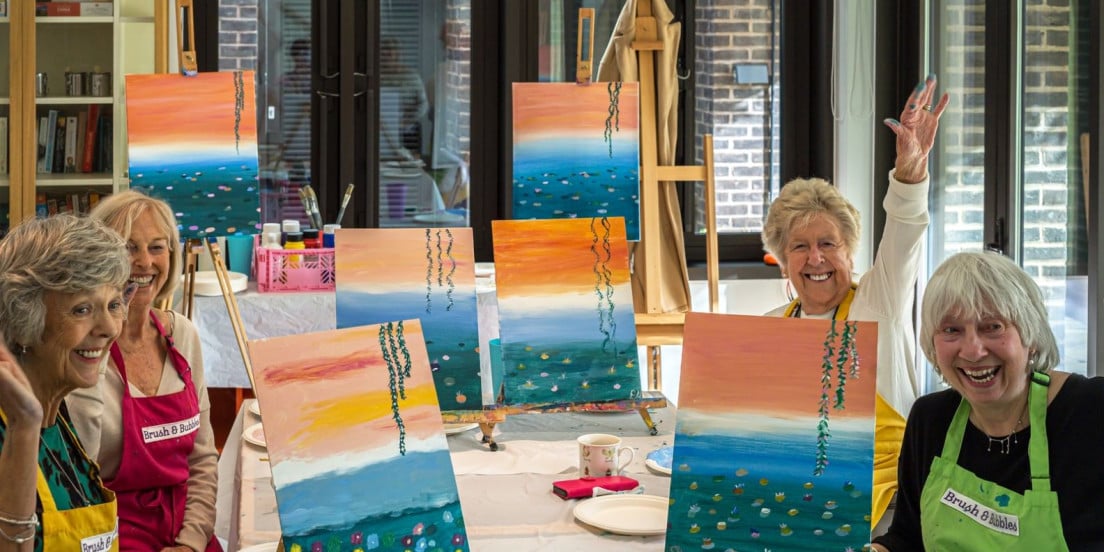Crafting a Retirement Lifestyle That Brings You Joy
13 February 2025
Posted under: Hobbies & interests, News articles

Transitioning to retirement can sometimes lead to feelings of aimlessness or loneliness if you don't have a plan. However, building a fulfilling retirement lifestyle is very achievable. The key is finding the right balance between relaxation, personal growth, and social connections. Here are some actionable tips to help you create the retirement lifestyle you want.
Define Your Purpose
One of the first challenges many retirees face is a loss of identity. For years, work may have provided structure, goals and a sense of accomplishment. Retirement requires redefining this purpose.
Explore Your Passions
Reflect on what excites you. This could be painting, gardening, mentoring or travelling; use your retirement as an opportunity to dive deeper into these interests.
Set Goals
Establish short-term and long-term goals that give you a sense of direction. This could be learning a new language, completing a 5K run or jog or writing a memoir.
Volunteer
Giving back can bring immense satisfaction. Many organisations need volunteers and your expertise could make a significant impact.
Stay Physically Active
Physical activity is a cornerstone of a fulfilling retirement lifestyle as it not only boosts physical health but also improves mental well-being.
Try New Activities
If traditional gym routines are not something that appeals to you, experiment with activities such as yoga or pilates.
Join a Group
Participate in walking clubs, hiking groups or even joining senior sports leagues to combine exercise with social interaction.
Set a Routine
Aim for at least 30 minutes of moderate exercise most days. Keeping a consistent schedule helps build habits and gives structure to your day.
Prioritise Mental Stimulation
Keeping your brain active is just as important as physical activity. Mental engagement helps ward off cognitive decline and keeps life interesting.
Lifelong Learning
Retirees can take advantage of online courses and classes offered by local libraries to learn new skills or refresh their knowledge in areas like digital literacy and creative writing.
Hobbies That Challenge You
Engaging in mentally stimulating activities like chess, puzzles, or knitting can help stave off the impacts of dementia and cognitive decline. Creating and working with patterns has been shown to boost cognitive function, which is why skills like knitting are often recommended to maintain mental sharpness.
Stay Curious
Indulge your curiosity about the world by reading widely, watching documentaries, or exploring podcasts. Delve into familiar and unfamiliar subjects - pursuing knowledge is invaluable at any stage of life.
Cultivate Social Connections
Loneliness can be a significant risk in retirement, but proactive steps can help you build and maintain meaningful relationships.
Reconnect With Old Friends
Take time to reconnect with former colleagues, neighbours or friends you have lost touch with over the years. Reach out through phone calls, social media or in-person meetups to reminisce, share updates and rekindle bonds. Reconnecting can provide a sense of belonging and strengthen relationships that have stood the test of time.
Join Clubs or Groups
Participate in local clubs, groups or organisations that are tailored to your interests and hobbies. This may be a book club, gardening societies, crafting groups or even joining a sports league. Joining groups like these helps to foster social interaction, builds community connections and offers opportunities to meet new people while enjoying shared activities that bring joy and fulfilment.
Create Daily Joys
Finding happiness in retirement does not always require grand gestures. Sometimes, the small, everyday pleasures matter most.
Practice Gratitude
Begin or end each day with a moment of reflection to acknowledge what you are grateful for. Whether it's your loved ones, good health, or small delights like sunshine or a tasty meal, this practice can shift your focus from difficulties to blessings. Cultivating gratitude nurtures positivity, reduces stress, and fosters an appreciation for life's simple pleasures. Establish Routines You Love
Design daily routines that bring comfort and joy to your life. Start mornings with activities like enjoying a cup of tea, listening to your favourite music, meditating or taking a peaceful walk. Evening rituals like reading or journaling provide wonderful moments of relaxation and reflection. Familiar routines create structure, reduce stress and make each day feel intentional and fulfilling.
Seek Support When Needed
Transitioning to retirement can sometimes feel overwhelming. Do not hesitate to seek help if you are struggling with loneliness or lack of direction.
Talk to a Therapist
Consider seeking guidance from a licensed therapist to help process the emotional challenges that retirement can bring. Therapists provide tools to manage stress, combat feelings of loneliness and develop coping strategies
Join Support Groups
Explore local or online support groups designed specifically for retirees. These groups offer a safe space to share experiences, gain insights and connect with others who understand similar challenges. Sharing stories, advice and encouragement helps to build a stronger community, reminding you that you are not navigating this phase of life alone.
Lean on Loved Ones
Open up to family or close friends about your thoughts, emotions, or struggles during retirement. Honest communication fosters deeper connections and allows others to provide support. Leaning on loved ones strengthens your relationships and creates a trusted circle of encouragement, ensuring you feel valued and supported in this new chapter.
Retirement is your chance to design a life filled with joy, purpose and fulfilment. Take the first step today, and start shaping the retirement of your dreams.